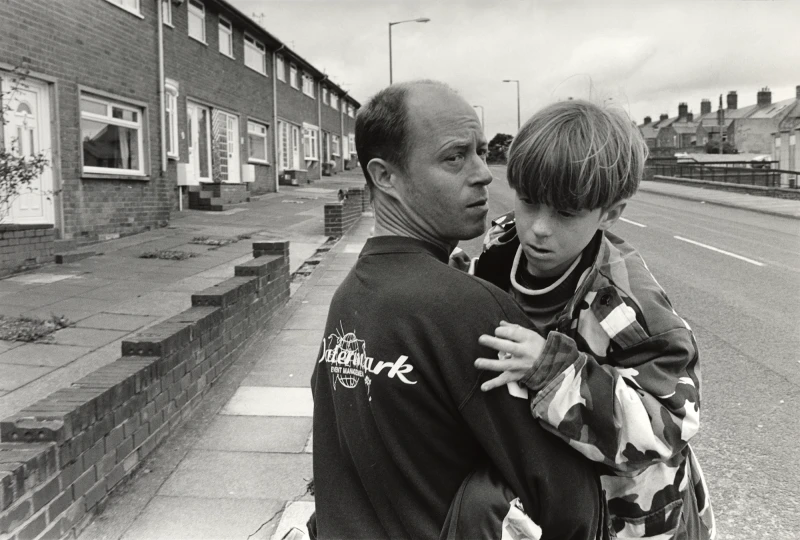Fathers In Focus
June 14th, 2025 | Ellen Stone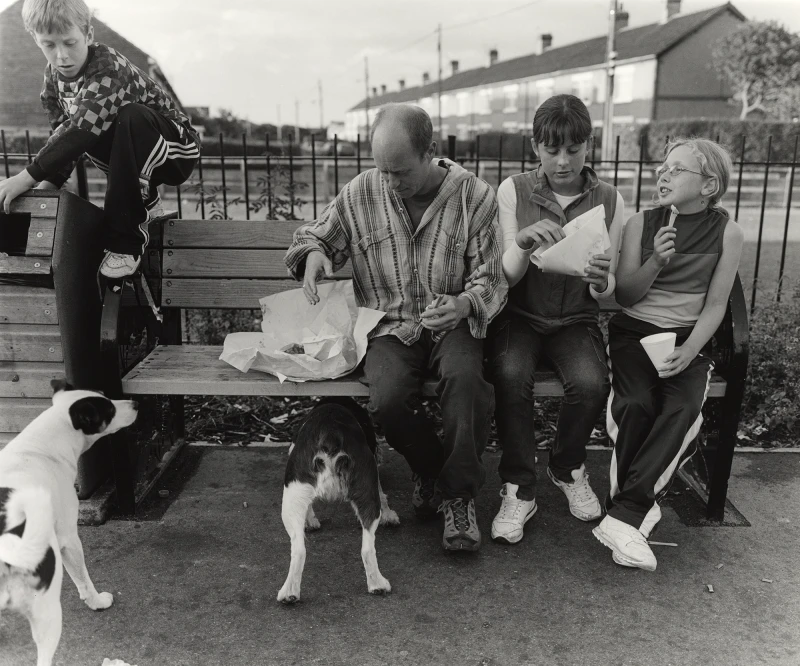
In the late 1990s, photographer Peter Fryer began working in Seaham, a coastal town in County Durham. He was there to document the lives of two single fathers at a time when their jobs, like much else in post-industrial Britain, had disappeared. However what remained was the ordinary, overlooked labour of care. The resulting series, Fathers, became part of Amber Film & Photography Collective’s Coalfield Stories, a long-running attempt to reckon with the economic and social disintegration that followed the collapse of heavy industry in the North East.
Fryer’s images resist spectacle. They are not designed to shock, or to sentimentalise. Instead, they stay close to the grain of daily life. As a result they show scenes we are used to seeing recorded, let alone preserved in collections and archives. And that’s the point. British narratives of fatherhood, particularly in working-class communities shaped by coal and steel, have long relied on archetypes: the strong back, the closed mouth, the reliable pay packet. Fathers steps away from that pattern. It doesn’t attempt to rewrite masculinity as something softer or newer. It simply asks what happens when care becomes the primary work.
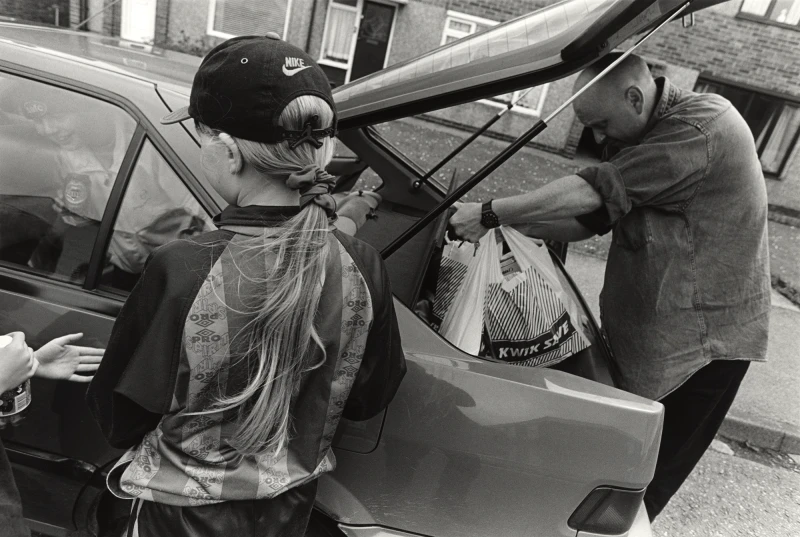
The answer is both intimate and political. In Fryer’s photographs, fatherhood is not demonstrated for the camera. It is lived in rooms that feel worn and real. The men here are not making statements - they are making meals, soothing tears, brushing hair. In these coalfield communities, masculinity was once defined by risk and resistance. The domestic sphere belonged elsewhere and to other people. But that arrangement collapsed when workplaces closed and what Fryer captures is what came after.
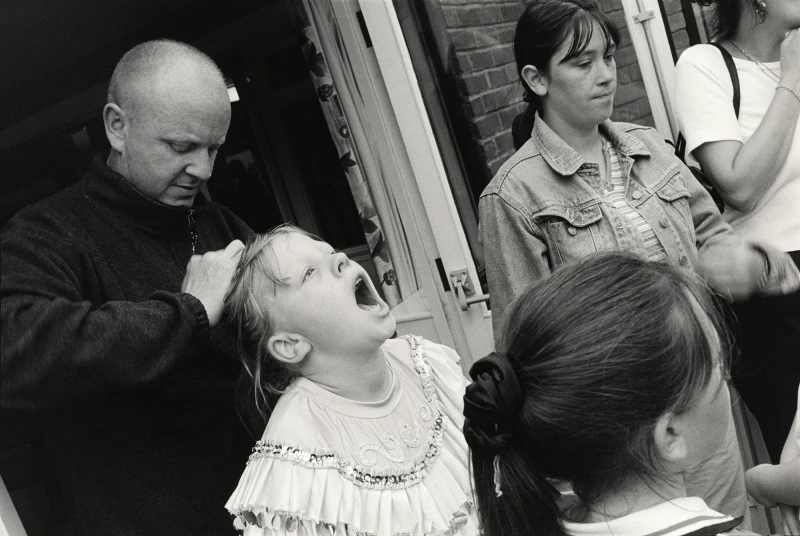
These images showcase an intimate form of labour. That labour, in some cases, is complicated by illness and the mental strain that accompanies it. One of the men Fryer photographed, Paul, speaks about his son’s long-term health issues with a candour that resonates. His story is not only about custody, bath time, and what to do over the summer holiday - though all of those shaped his reality - it is also about what happens when a parent is also managing the everyday reality of a child who is unwell. Reliability, once symbolic, becomes literal. It is not just about being present it is about being counted on.
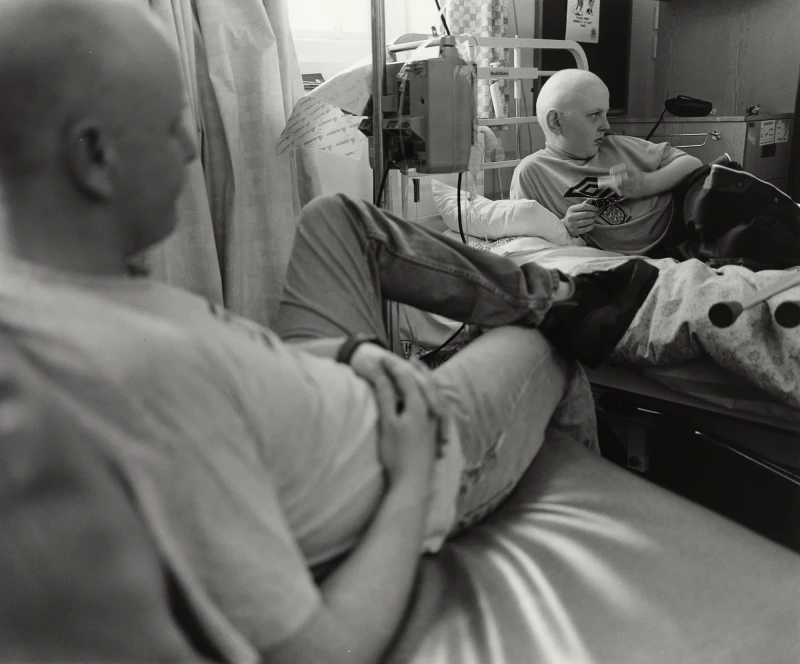
Fathers is not simply a portrait of hardship, or an account of social change. It is a record of masculinity in transition: uncertain, unshowy, but enduring. The images sit within a longer tradition of British social documentary photography, but they also reach for something that tradition often misses - the emotional labour that continues behind closed doors.
To celebrate Fathers is to recognise that parenthood is not a finished idea, but a lived process. It is shaped by its context, refracted through class, history and daily improvisation. What Fryer shows us is not fatherhood as fantasy, but fatherhood as fact. Love, here, is not abstract. It is routine, practised, sometimes exhausted, and entirely real.
Peter Fryer’s Fathers remains one of the most quietly radical photographic series to emerge from the post-industrial North and is a seminal project within the AmberSide Collection. It asks us to consider that care, so often dismissed, feminised or hidden, is not only vital, but worthy of attention. Not in theory, but in practice.
